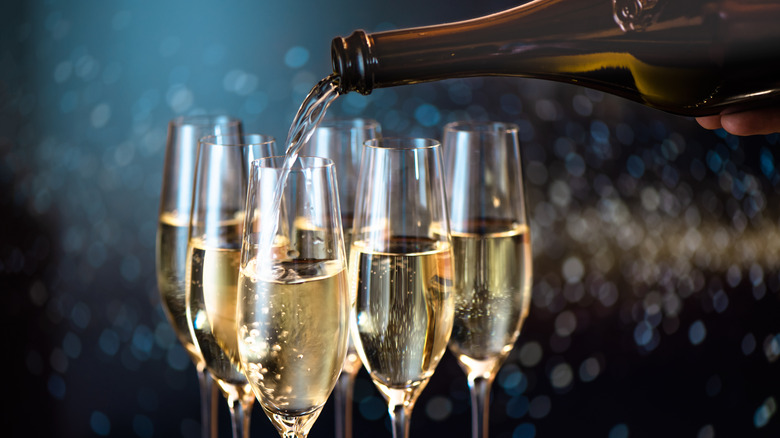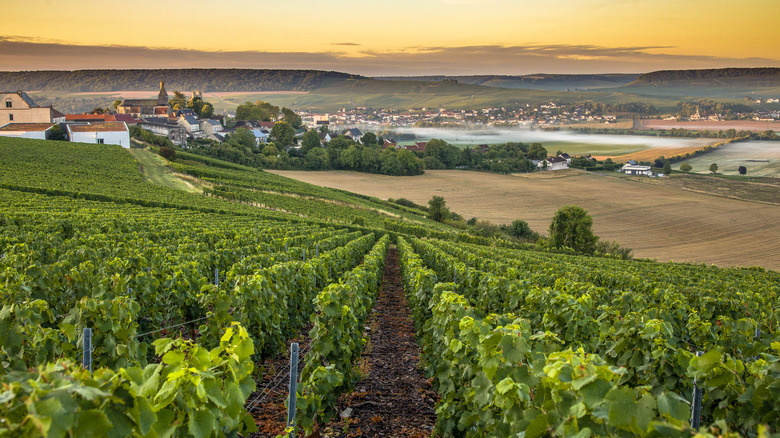Why Vintage May Not Mean As Much As You Think When It Comes To Champagne
Before you worry about how important the vintage is to your wine or Champagne, you first have to understand what vintage means. Wine labels are filled with enough jargon, regions, and different styles to drive even experts a little crazy, so it would only make sense they would use "vintage," different than most people. In the wine world, vintage does not directly correlate with old, as Wine Folly states that vintage is just another way of saying the year the wine was produced. So a wine bottled in 2021 is still vintage, even if it hasn't been sitting in a cellar aging for the past 10 years.
Even if vintage doesn't mean old and is no guarantee of quality, it is still meaningful in the world of wine. Wine's flavor is heavily impacted by climate, so weather variation year-to-year can affect a bottle's quality, even when it comes from the same vineyard. This means more hardcore wine fans can use a bottle's vintage to track whether it was a "good year" or not. Even budget wines with a good vintage year can be of high quality, while more expensive labels from a bad year may not be worth the price. Champagne throws a bit of a wrench in the process, however. It's not that vintage won't matter at all, but the process by which a lot of Champagne is produced means it may be less affected.
Vintage years are more rare for Champagne
Champagne has an issue when it comes to vintage. The famous bubbly is considered a luxury item; people shell out big money for it and expect the quality to match. That's part of the reason why Champagne got an early appellation d'origine contrôlée, or AOC, back in 1935. AOC protects Champagne against low-quality imitations and ensures it is produced only in the Champagne region of France. The issue arises in the year-to-year consistency of Champagne. According to Vine Pair, the Champagne region is one of the most climatically variable wine regions in the world. So Champagne quality, the very basis of its reputation, can also vary massively each year.
The solution, and the reason vintage doesn't matter as much, is that to ensure consistent quality and protect against the yearly changes in weather, most Champagne is a mix of different years' grapes. This gives vintners more direct control over the quality, and it also means most Champagne bottles won't have a vintage year at all. There are still some that will have years attached to them, but that means it was an exceptionally good year where the harvest stood on its own, and the bottles are priced to match. So while you may not know exactly what year your Champagne was produced, you can still rest easy knowing your bottle will meet the expert standards of most producers. The winemakers of Champagne wouldn't have it any other way.

